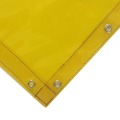So here we are, diving into the jungle that is the Ahpra NPE, or as the folks call it, the National Psychology Exam. It's like the final boss in a video game for folks aiming to practice psychology Down Under. This guide’s gonna help you navigate through the maze, giving you the lowdown on what to expect and how to come out on top.
Understanding the Ahpra NPE Framework
Think of the Ahpra NPE framework as a recipe. But instead of baking a cake, you're cooking up a successful psychology career in Australia. This framework lays out the ingredients you need: knowledge, skills, and ethics. It's not just about what you know, but how you apply it to help folks in real life.
The Evolution and Purpose of the National Psychology Exam
The National Psychology Exam, it's not ancient history, but it's got a tale to tell. Born from the need to ensure every psychologist in Australia is up to snuff, it’s like a quality control system, but for brains. It checks if you've got the smarts and the heart to do the job right. The National Psychology Exam, it's not ancient history, but it's got a tale to tell. Born from the need to ensure every psychologist in Australia is up to snuff, it’s like a quality control system, but for brains. It checks if you've got the smarts and the heart to do the job right.
A Historical Overview
Once upon a time, becoming a psychologist in Australia was like the Wild West—rules and regulations were all over the place. Enter the National Psychology Exam, the new sheriff in town, aiming to standardize how psychologists are vetted, making sure everyone's playing by the same rules.
Objectives and Impact on Psychology Practice in Australia
The goal was clear: lift the bar so high that only the best can leap over it. And the impact? Significant. It’s rejigged the whole psychology scene, ensuring that practitioners aren’t just book smart but can handle the nitty-gritty of real-world dilemmas with finesse.
Registration Essentials for Exam Candidates
Before you can tackle the National Psychology Exam, you've got to throw your hat in the ring correctly. It’s like signing up for a marathon; you can’t just rock up and run. You'll need to fill out forms, tick boxes, and make sure you're on the list. Thankfully, the process isn't as daunting as it sounds.
Step-by-Step Registration Process
First up, grab your psychology exam candidate manual. It’s your treasure map, guiding you through the murky waters of registration. Follow it step-by-step, from A to Z, ensuring you don’t miss a beat. Dot your i's, cross your t's, and you’re golden.
Requirements for International Practitioners
If you're coming from across the seas, welcome! But there's homework to do. As a health practitioner arriving from foreign shores, you’ll need to prove you can strut your stuff in the Aussie context. It’s more than just showing off your qualifications; it’s about fitting into the healthcare jigsaw puzzle here.
Preparing for the ahpra npe
Rolled up your sleeves? Good. Preparing for this exam is like training for a decathlon. You'll need to flex your mental muscles across a variety of topics, from theory to practice, ethics to communication. It's no walk in the park, but it's not climbing Everest either.
Comprehensive Study Resources and Materials
Think of this as your toolbox—a mix of resources to help you build a sturdy bridge to success. From official curriculum to recommended readings, you've got a wealth of knowledge at your fingertips. Dive in, and let's start constructing that bridge, brick by brick.
Official Exam Curriculum and Recommended Reading List
The official curriculum is your roadmap, highlighting the key stops along your journey. Pair it with a reading list that’s like a buffet of brain food—pick and choose according to your taste, but make sure to get a balanced diet of all topics covered.
Accessing Practice Exams and Sample Questions
Practice makes perfect, they say, and they're not wrong. Get your hands on practice exams and sample questions. It’s like scrimmaging before the big game, giving you a sneak peek of the challenges ahead and honing your skills until they’re sharp as a tack.
Dual Delivery Format of the Exam
Here's the deal: the National Psychology Exam comes in two flavors—in-person and online. It’s like being at a fork in the road and getting to choose your path. Each has its own set of rules and vibes, so pick what suits you best and run with it.
In-person and Online Exam Options
Whether you’re old school and prefer the pencil-and-paper method, or you’re a digital native who thrives online, there’s an option tailored just for you. Choose wisely, as each format offers a unique experience, with the same goal in sight.
Technical Requirements and Preparation Tips
Going digital? Make sure your gear is up to speed. A reliable internet connection, a functioning webcam, and a quiet spot are your trio for success. It's not just about studying; it’s also about setting the stage for a smooth exam day.
Navigating Post-Exam Processes
After the dust settles post-exam, there's a bit more to do than just wait. Navigating the aftermath involves understanding your outcomes, deciphering feedback, and, if needed, prepping for another go. It’s like following a recipe; each step needs attention to whip up a successful outcome. Whether it’s sifting through results or plotting your next move, there’s a clear path laid out for every candidate.
Understanding Exam Outcomes
When the results come in, it’s more than just a pass or fail situation. It's understanding the nuts and bolts of what your scores actually mean. Each number has a story to tell, offering insights into where you shined and where there’s room for improvement. Think of it as a custom roadmap, guiding your journey towards becoming a licensed practitioner. It’s not just about the destination; every twist and turn in your scores has its significance.
Interpreting Results and Feedback
Getting your exam results might make your heart race, but there’s gold in those numbers. Breaking down the scores gives you a front-row seat to your performance. This isn’t just about patting yourself on the back or nursing wounds; it’s constructive critique time. Each comment or score is a signpost, directing you to areas needing a bit more elbow grease or highlighting your psychology superstar moments.
Procedures for Exam Retake in Case of Failure
Falling short isn’t the end of the road; it’s just a small detour. If the exam didn’t go your way, taking a dive back into the study pool is what’s next on the cards. There’s a process for round two, and it’s set up to give you another shot at proving your prowess. It’s about brushing off, gearing up, and diving in with the wisdom of experience under your belt. Each attempt is a learning curve, sharpening your skills for that winning score.
Frequently Asked Questions (FAQs)
Got questions? You’re not the only one. There’s a treasure trove of queries that many find themselves pondering over. From the intricacies of registration to the fine print of exam prep, these FAQs are like a beacon, guiding lost ships to shore. It’s the go-to spot to clear up any foggy details, ensuring you’re fully prepped and ready to sail smoothly through your psychology journey.
Essential Queries Addressed for Exam Candidates
When it comes to tackling the exam, there are no silly questions, only ones that pave the way to clarity. This section is a goldmine of information, covering everything from the nitty-gritty of exam content to logistic queries that might have you scratching your head. It’s a compilation of wisdom, answering the burning questions that hover in the minds of many candidates.
Resources for Further Assistance and Information
Should you find yourself in need of a bit more help, there’s a raft of resources waiting to be tapped into. From detailed guides to support services, this well of information is designed to arm you with everything needed to navigate the exam process. Consider it your toolbox, equipped with all the essentials for patching up uncertainties and bolstering your preparedness.










